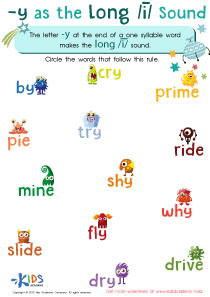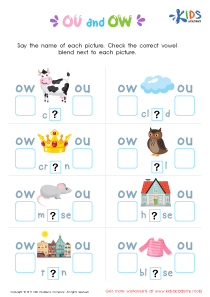Long Vowels Worksheets for Ages 4-9
36 filtered results
-
From - To
Enhance your child's reading skills with our Long Vowels Worksheets for ages 4-9! These engaging, printable worksheets are carefully designed to make learning fun and effective. By focusing on the five long vowels—A, E, I, O, U—children will develop phonemic awareness, improve pronunciation, and better understand word structure. Each activity uses delightful illustrations and interactive tasks to keep young learners captivated. Suitable for preschool through early elementary, these worksheets are perfect for homeschoolers, classroom teachers, or parents wanting to give their kids a head start in reading proficiency. Start their phonics journey today with our expertly crafted resources!
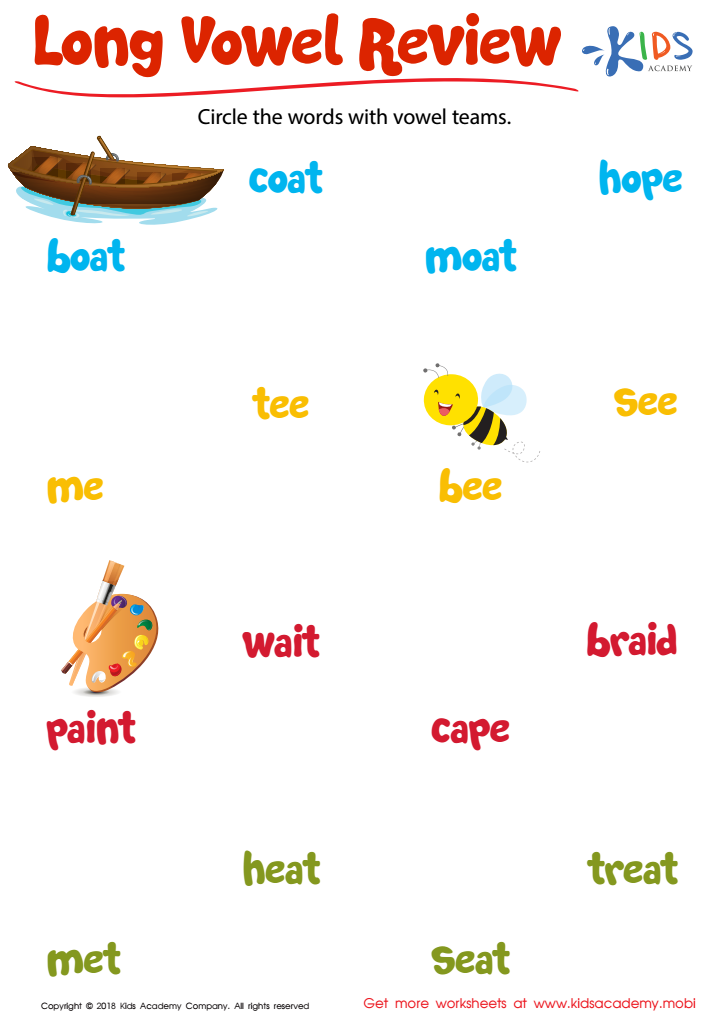

Long Vowel Review Worksheet
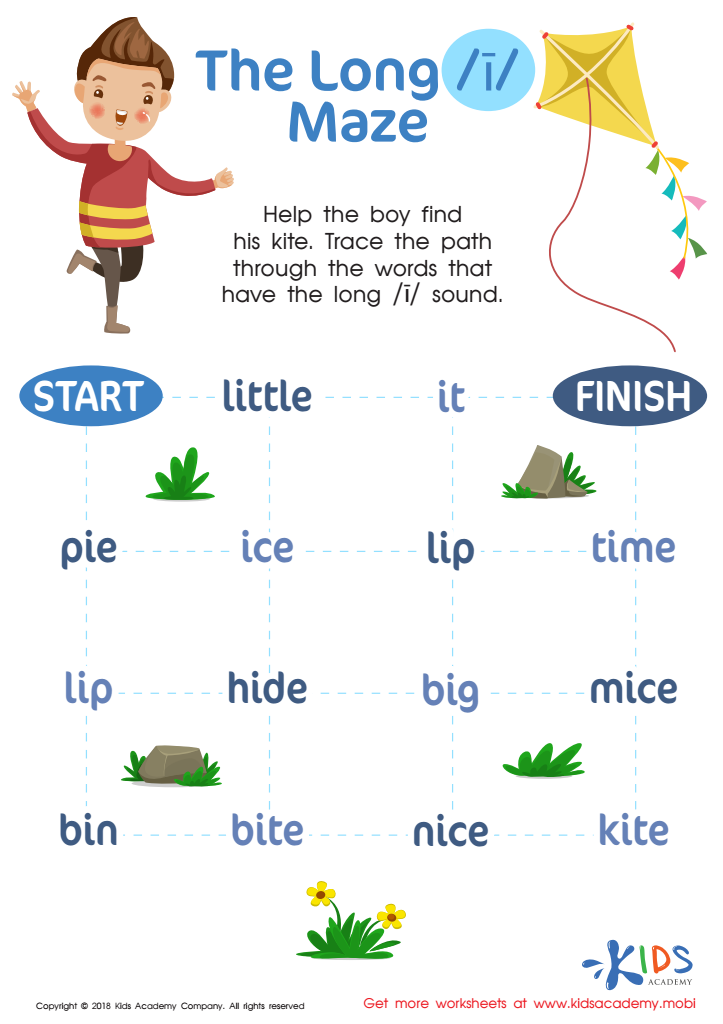

The Long I Maze Reading Worksheet
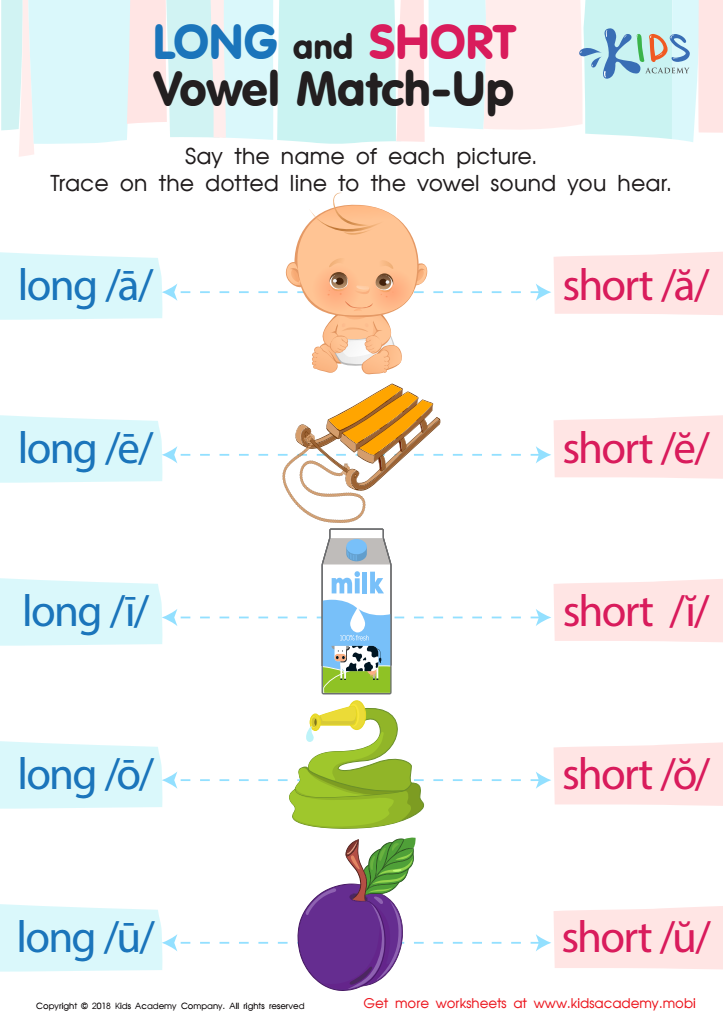

Long and Short Vowel Match up Reading Worksheet


Let's Check Long Vowels: Assessment Worksheet
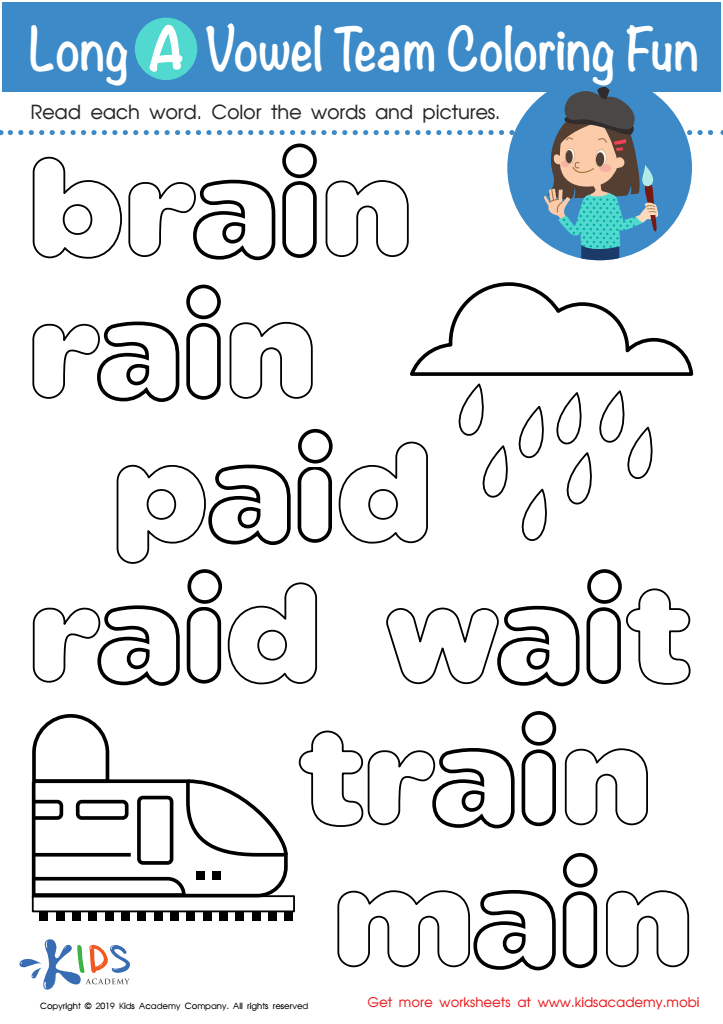

Long A Vowel Team Coloring Fun Worksheet
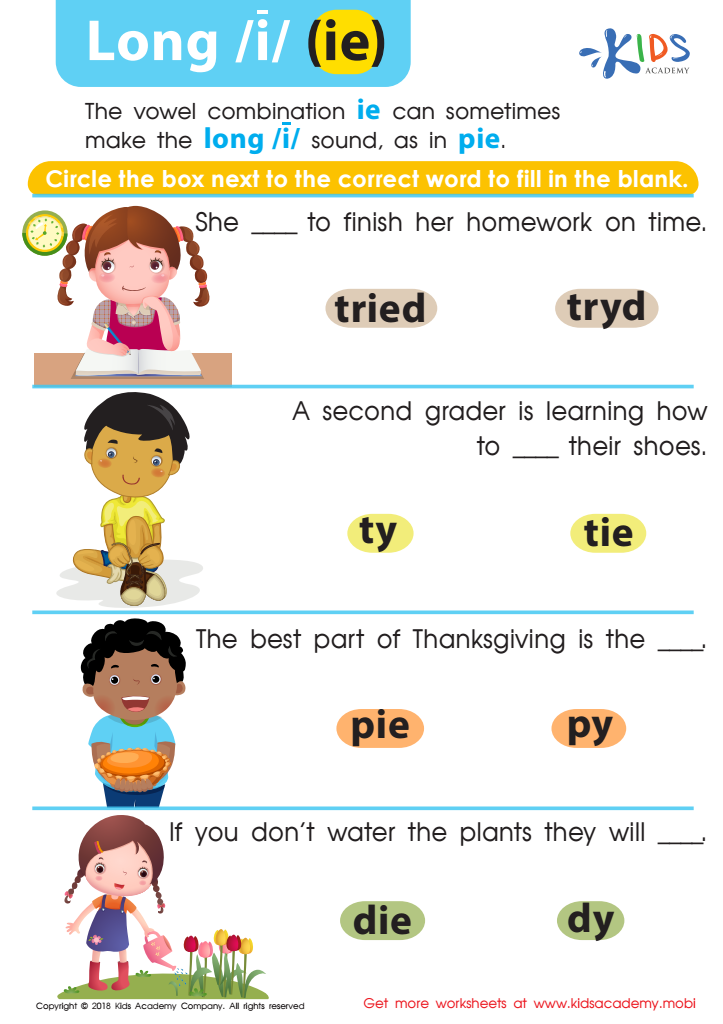

Reading: Long I and IE Worksheet
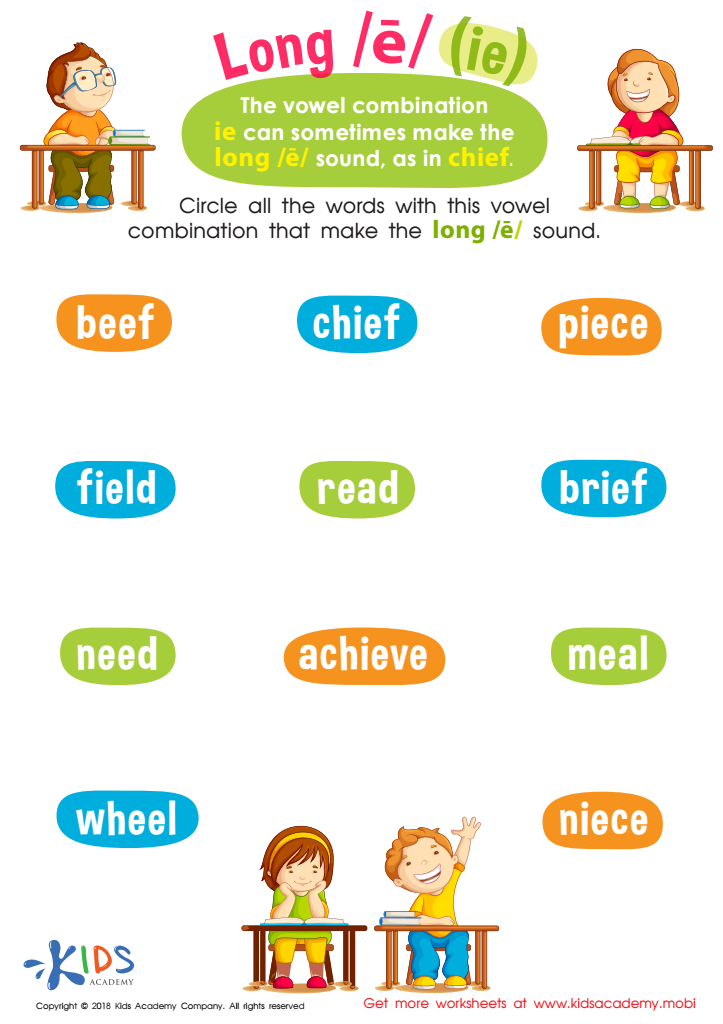

Reading: Long E and IE Worksheet
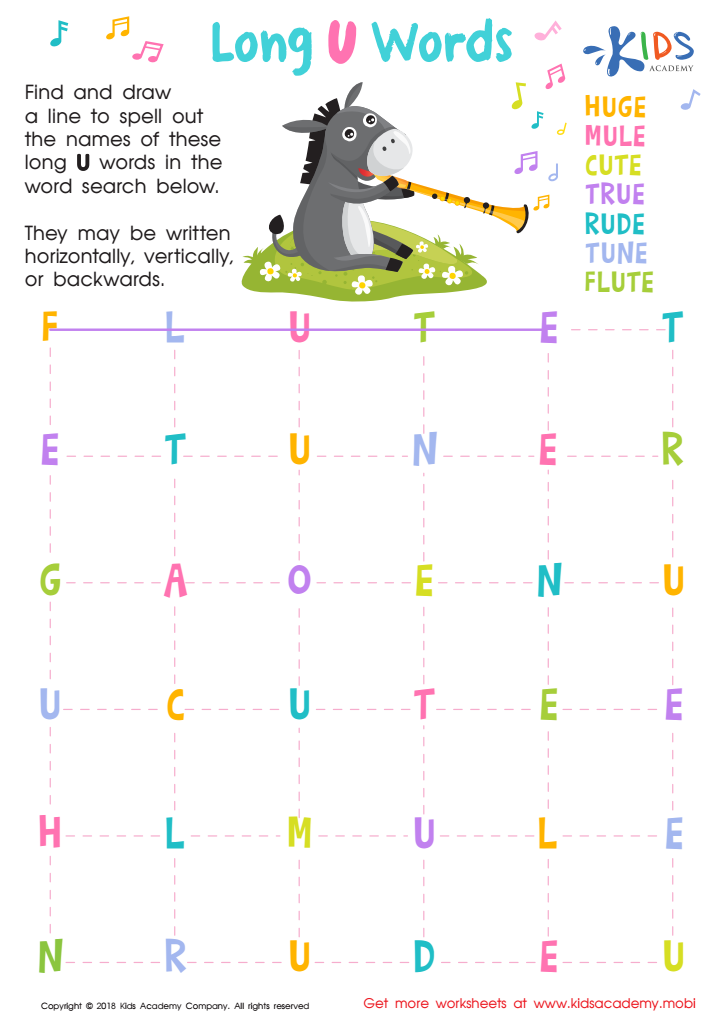

Long /u/ Words Worksheet
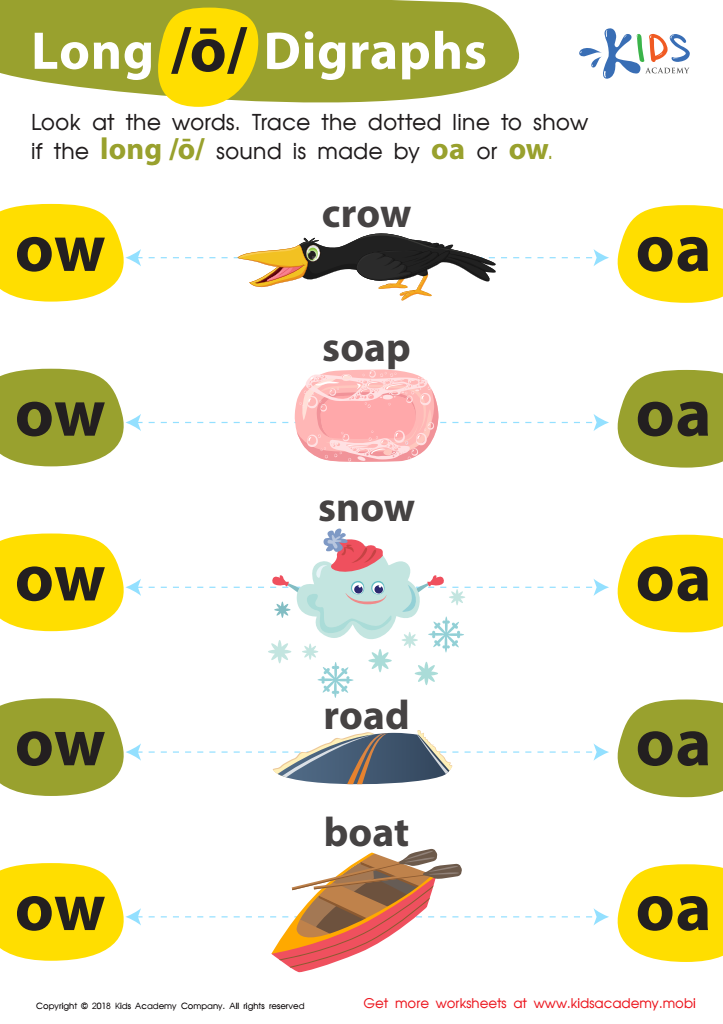

Reading: Long O Digraphs Worksheet
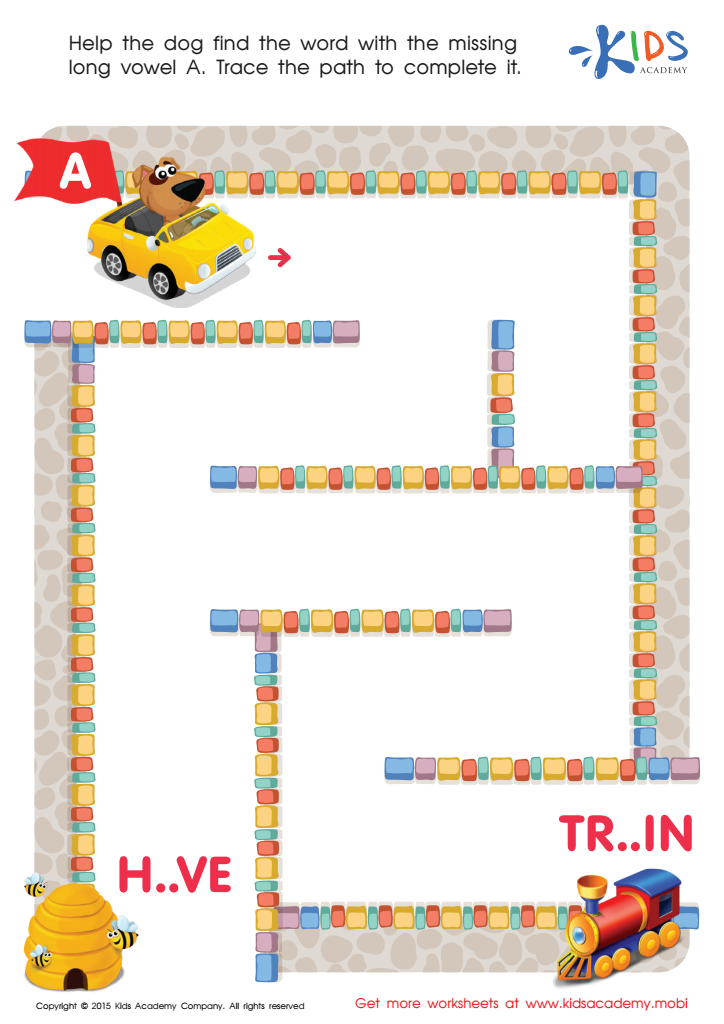

Long Vowel Sound A Worksheet
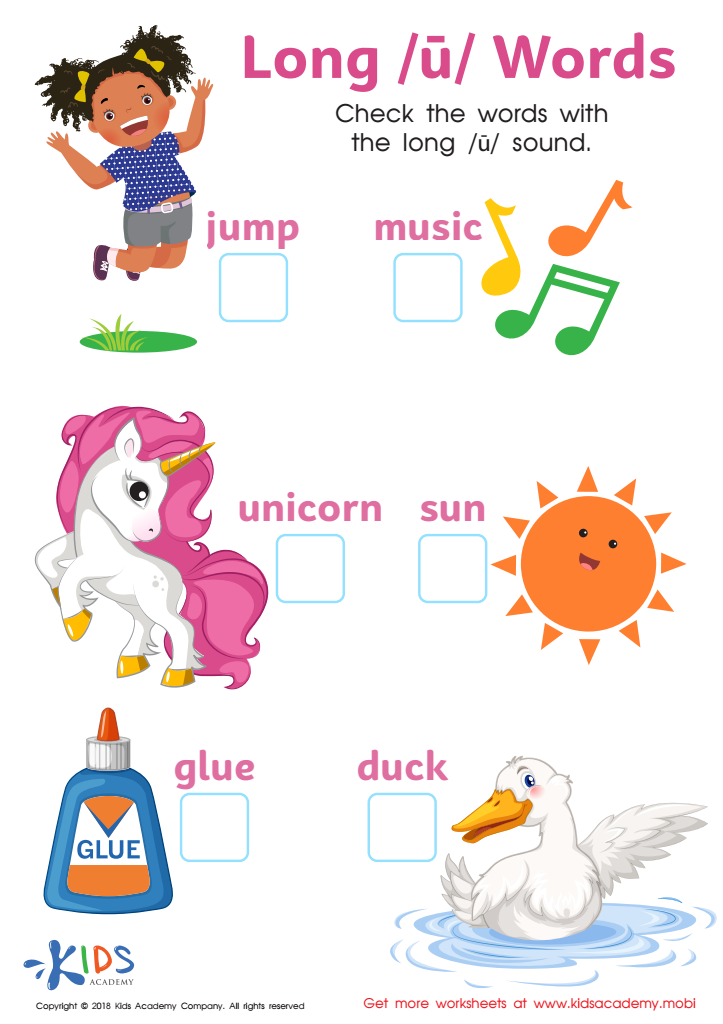

Long U Words Reading Worksheet


Long Vowel Maze /o/ and /i/ Worksheet
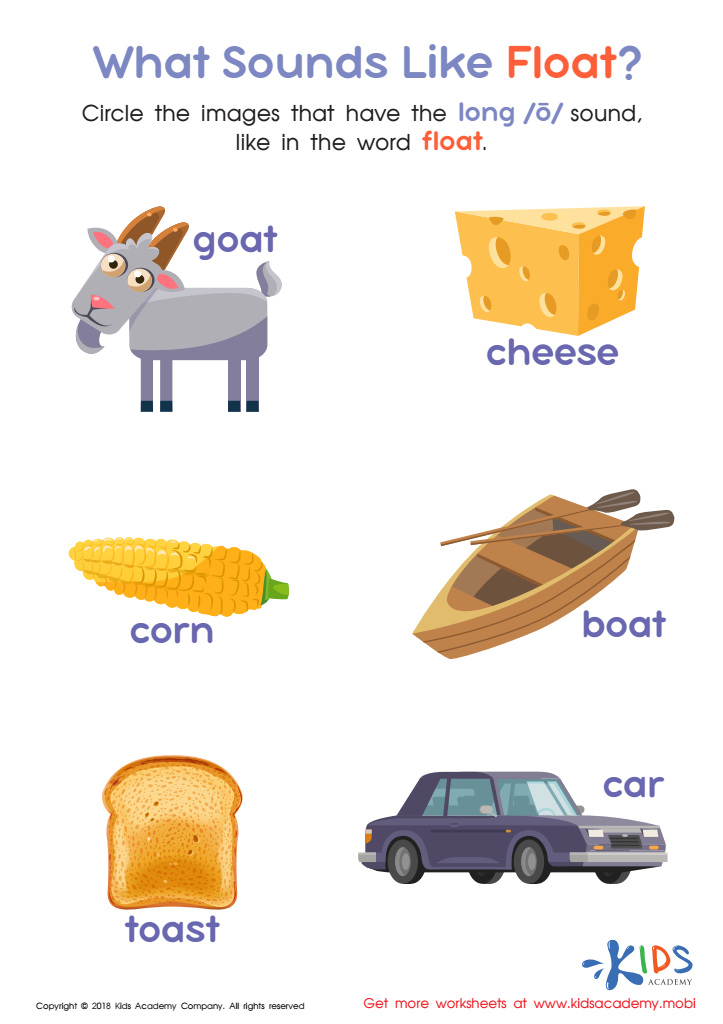

What Sounds Like Float? Worksheet
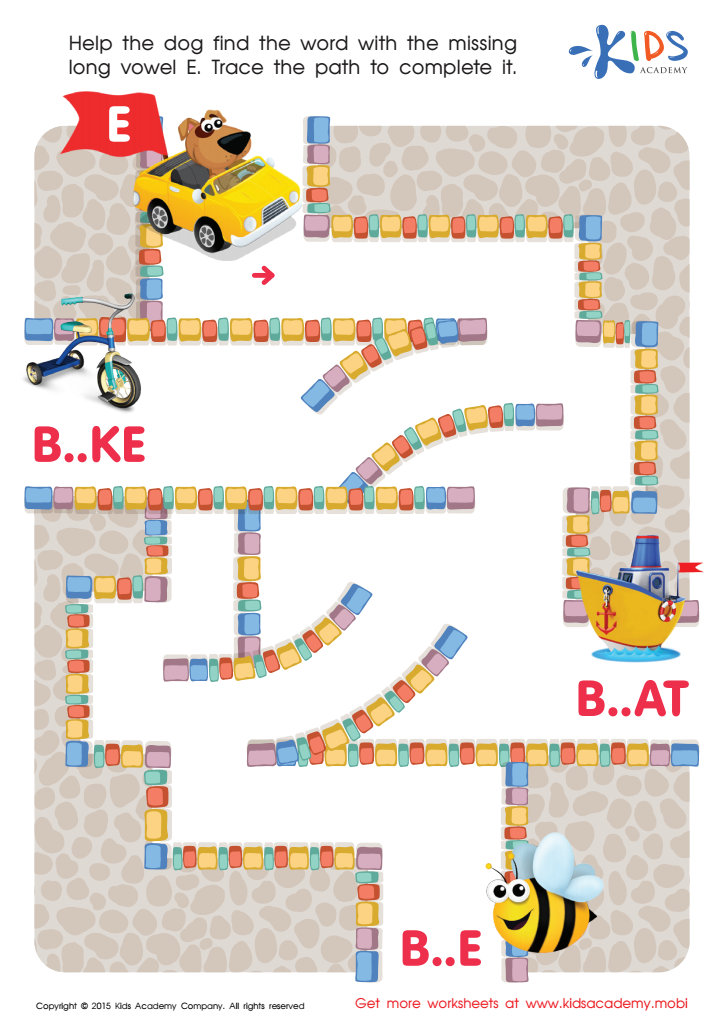

Long Vowel Sound E Worksheet
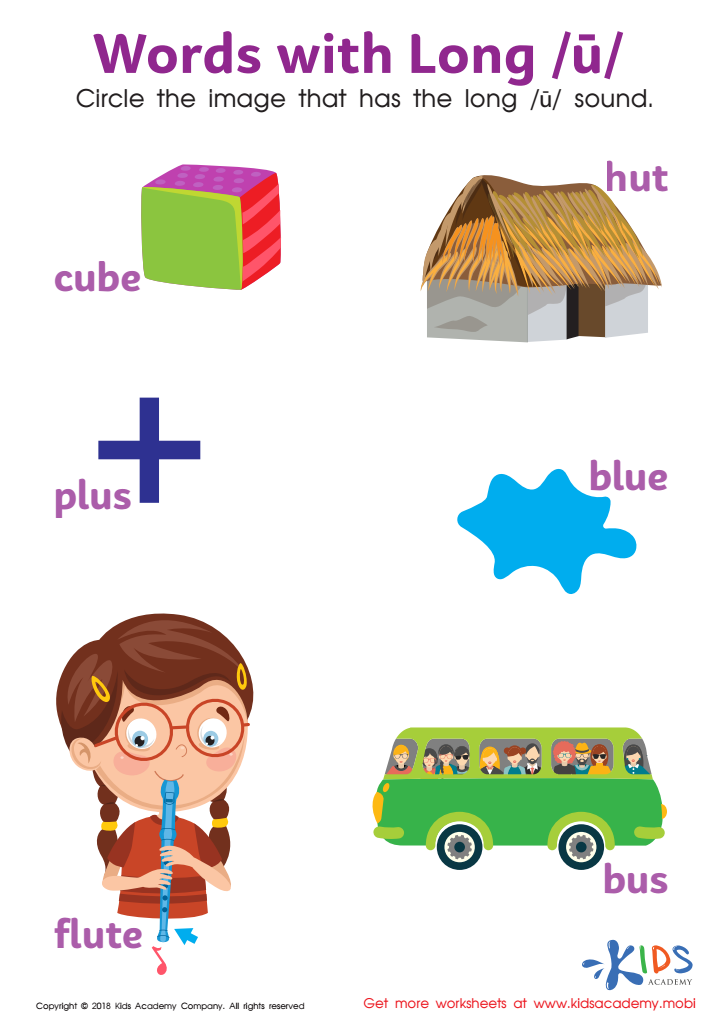

Words with Long U Reading Worksheet
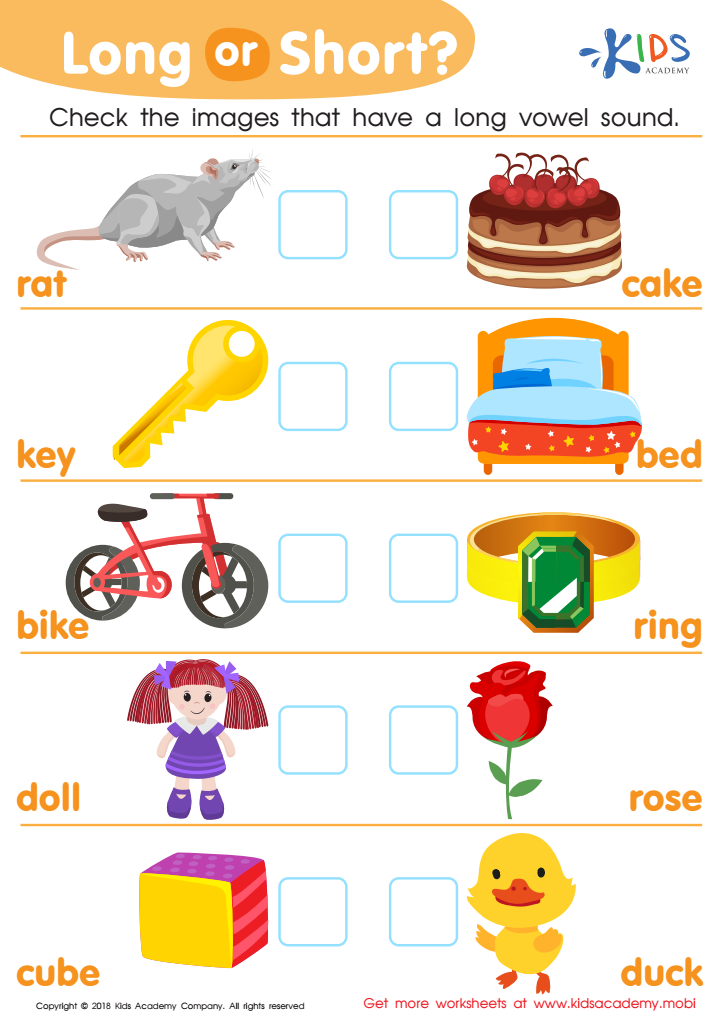

Long or Short Reading Worksheet
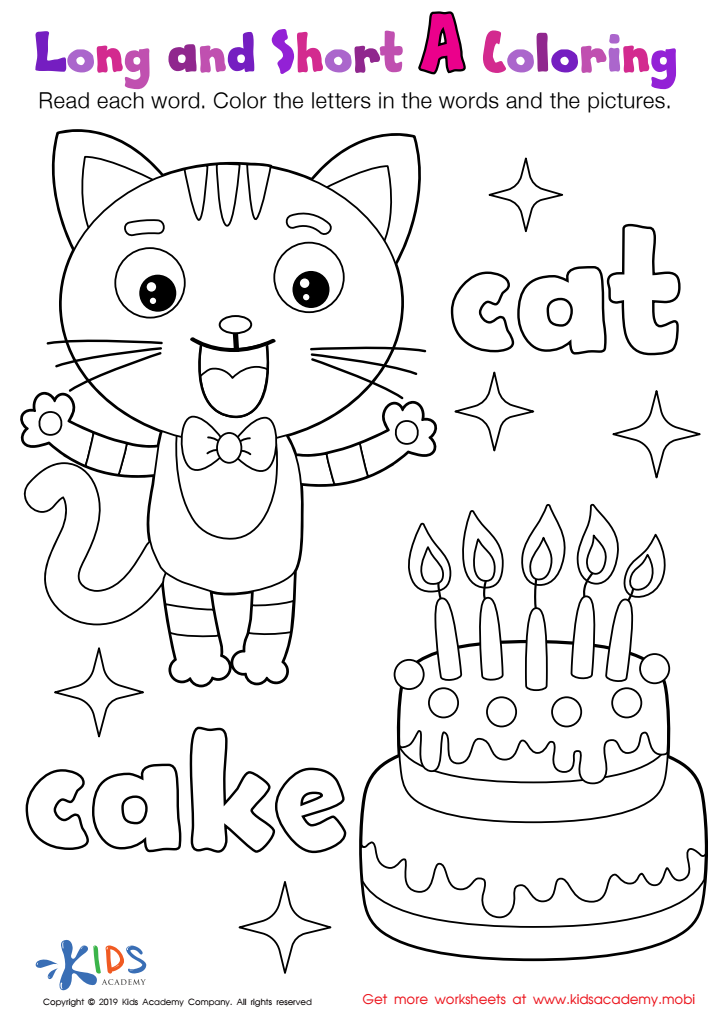

Long and Short A Worksheet


Long and Short U Worksheet
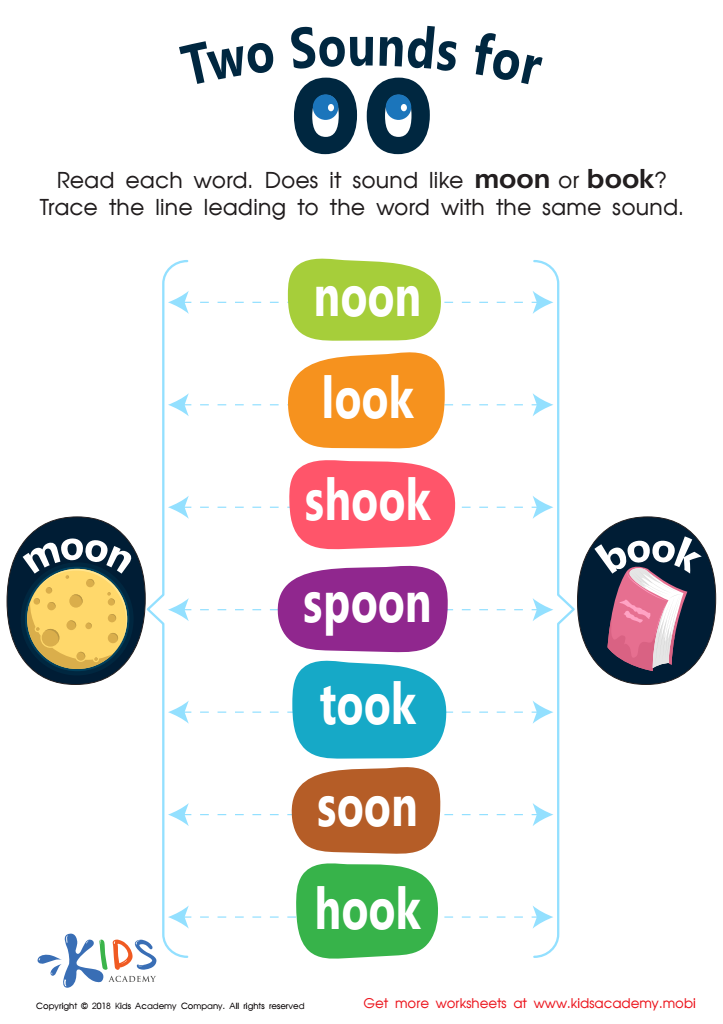

Two Sounds for OO Worksheet
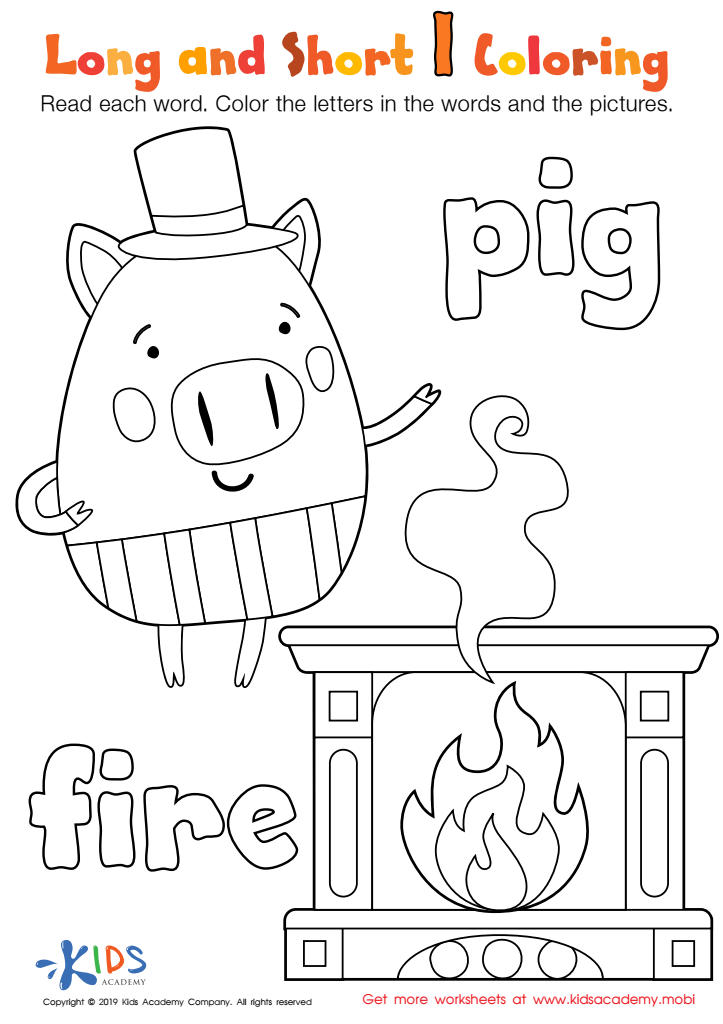

Long and Short I Worksheet
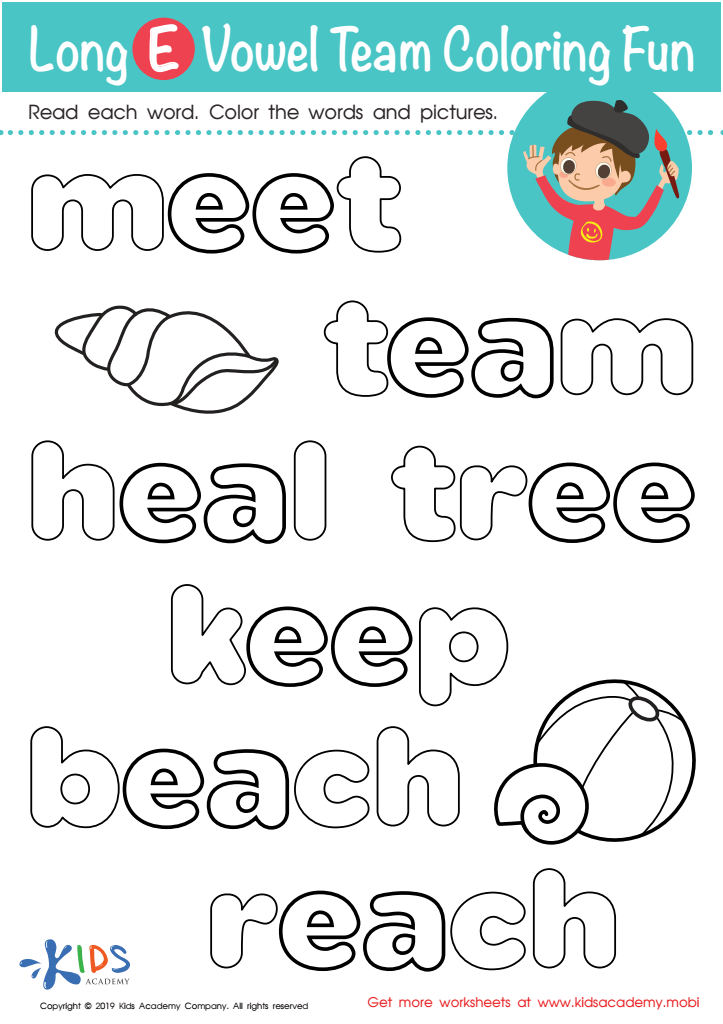

Long E Vowel Team Coloring Worksheet
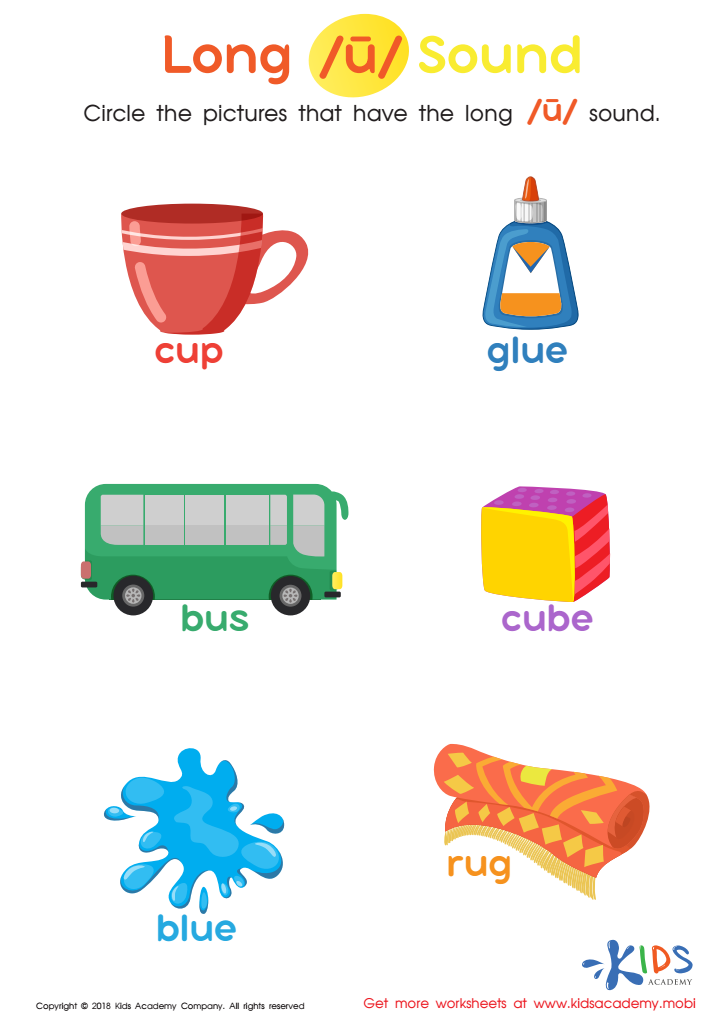

Long «u» Sound Worksheet
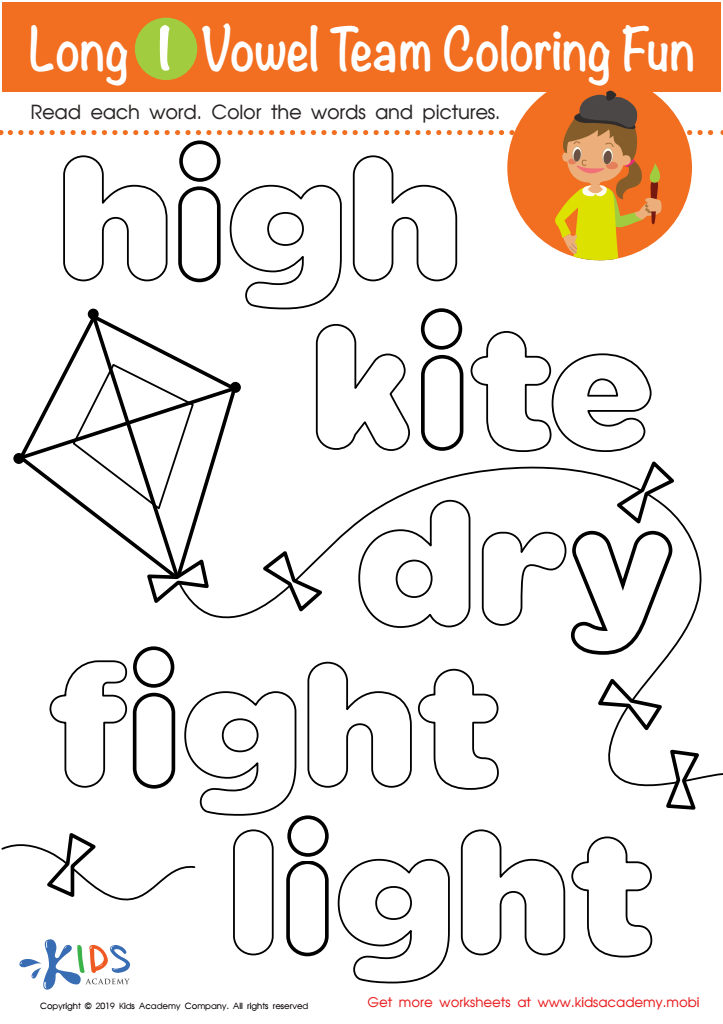

Long I Vowel Team Coloring Worksheet
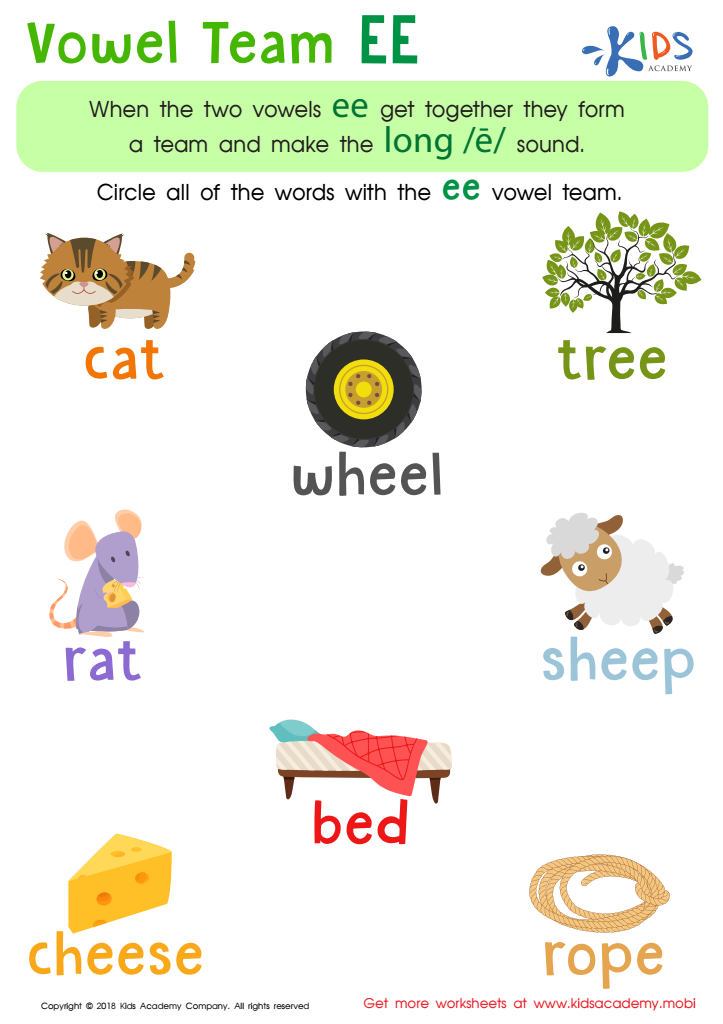

Reading: Vowel Team EE Worksheet
Understanding and mastering long vowels is essential for children ages 4-9 as they are foundational to reading, writing, and spelling skills. Long vowels represent the vocalic sounds that are pronounced the same way their corresponding letter names are, such as "a" in "cake" or "i" in "bike." Grasping these concepts enhances phonemic awareness, a critical factor in decoding new words and language acquisition.
By focusing on long vowels, parents and teachers can significantly boost children’s reading fluency. When kids can accurately identify and pronounce long vowels, they encounter fewer struggles when developing vocabulary and comprehension. This proficiency leads to more confident and efficient reading, reducing frustration and fostering a lifelong love of books.
Additionally, early mastery of long vowels supports spelling. The knowledge helps children apply the correct vowel sounds in their writing, making their attempts at words more accurate and their spelling more advanced for their age.
Moreover, this focus aids in listening and speaking skills; clear understanding of vowel sounds improves pronunciation and therefore communication. Long vowels being visually distinctive also helps in distinguishing between different words, reinforcing memory retention.
Implementing teaching strategies that emphasize long vowels sets a strong linguistic foundation. It enables children to seamlessly transition to more complex literacy skills, providing an essential stepping stone to later academic success.
 Assign to My Students
Assign to My Students





